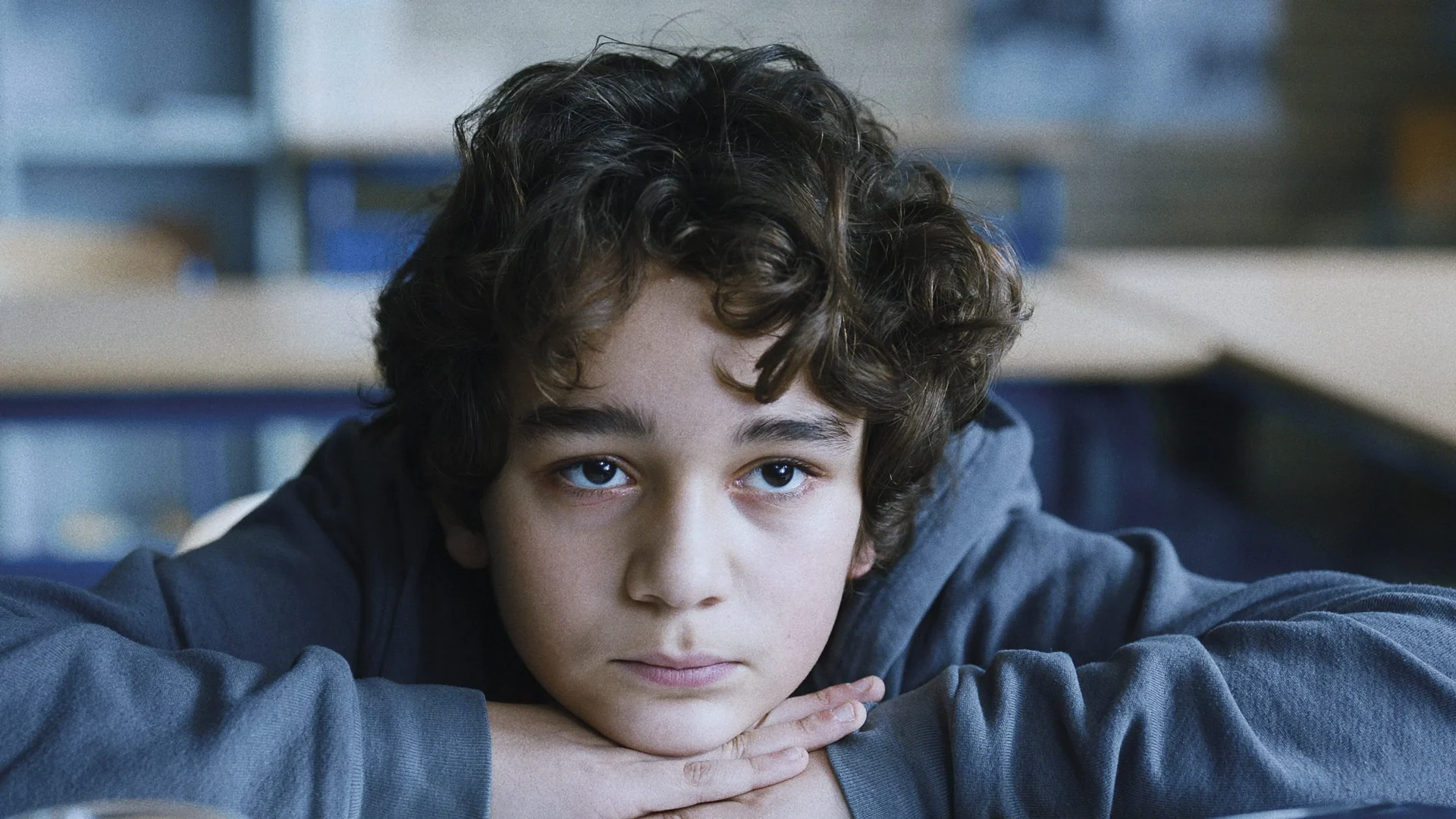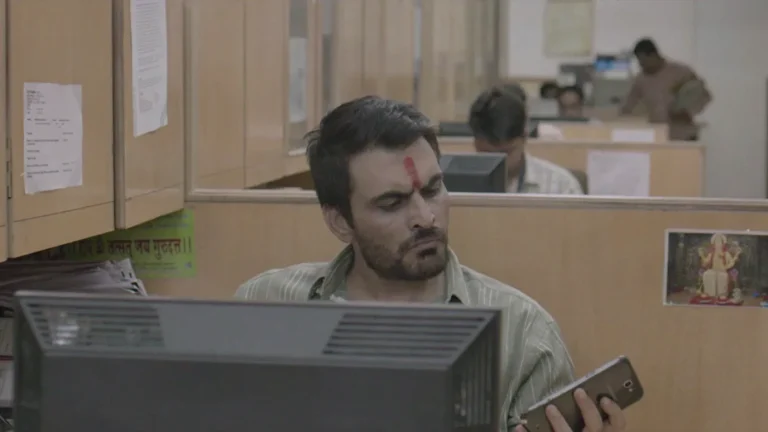The best films are those that don’t fully reveal themselves initially. Rather, they slowly and meticulously hook themselves onto your mind and don’t let go for days or weeks. Ilker Çatak’s 2023 German-language film “The Teacher’s Lounge,” deservedly nominated for best international feature at the Oscars, is a perfect example. Much like other films of a similar vein, “Uncut Gems” or “The Hunt,” to name just a couple, tension seeps out of every moment when watching, but it is the solid ideas and moral quandaries that arise from the piece that really linger, and make it an exceptional viewing experience.
Leonie Benesch carries the film as Carla Nowak, an idealistic teacher who finds her job extends far beyond the classroom as a simple incident of theft unravels into a complex situation that forces her to question her entire sense of right and wrong. Carla arrives as a fully-rounded, believable character due to her clear morality and worldview – one that will be thoroughly interrogated and exposed over the course of the film. Screenwriters Çatak and Johannes Duncker ensure her investigation process into this theft remains gripping throughout. Each character we are introduced to provides a new lens for viewing the moral intrigue, and the narrative, therefore, maintains an efficient pace. The tension ratchets as each predicament she finds herself in becomes more hostile, further challenging her firmly held beliefs and constructive, positive personality traits.
Nowak’s nuanced psychological transformation turns what could have perhaps been a simple, melodramatic tale into something far more probing. Çatak’s direction shrewdly instills the conventions of a thriller that force the audience into a perpetual state of uncertainty, questioning what is around every corner. You are, therefore, wholly engaged in watching the protagonist’s increasing lack of control over her situation. As the action spirals further and further, you would be hard-pressed not to be on the edge of your seat for the entirety of this contained 1 hour 40 minutes.
Don’t think its tight runtime doesn’t allow space for “The Teacher’s Lounge” to breathe. It’s quite the opposite, as Çatak allows for an uncomfortable amount of breathing room, forcing you to meditate on the ideas it explores whilst they play out in front of you. Catharsis comes from this awkward tension and desire for an escape that never arrives. Benesch subtly commands the screen, but the direction elevates the performance, offering a fascinating insight into the breakdown of her belief system through the creation of a never-faltering claustrophobic tone. Eva Löube delivers a great turn as Friederike Kuhn, a secretary at the school and single mother accused of theft. She expertly conveys her character’s desperation and provides grounded, character-based stakes to the piece.

The school setting is well realized and important since the film seems to prioritize creating atmosphere over delivering the narrative. What at the beginning is presented as a warm, welcoming environment slowly begins to embody something far different, something far less inviting. While mostly reserved for the background, the inexperienced child actors all do an excellent job of building authenticity in the setting.
One of the finest elements of the film is the score by Marvin Miller. It possesses a metronomic quality, as if it were a ticking time bomb, ready to explode, constantly positioning the spectator into an incessant sense of foreboding threat despite the stakes being grounded in character rather than narrative. Above all others, this element gives the film the thriller-esque quality and is thus one of the most important aspects of the overall success of “The Teacher’s Lounge.”
It perhaps doesn’t quite earn the ambiguity of its ending, as given the subjectivity, I would have liked something more conclusive in terms of showing how these events have shaped Carla. Instead, the ending switches focus to Oskar, who is portrayed excellently by the young Leonard Stettnisch but lacks the psychological complexity of Carla—however, the stellar build-up to this somewhat unsatisfactory conclusion far from derails the experience as a whole.
As stated previously, “The Teacher’s Lounge” is a film that prioritizes creating atmosphere over the construction of a distinctive narrative. Many of the elements found within have been explored elsewhere. Still, Ilker Çatak’s mapping conventions of a thriller onto this profoundly personal and layered examination of the unintended consequences of a desire to do good is masterful. Overall, it’s a brilliantly subtle piece that begs a slew of fascinating questions and is one of the underrated gems of last year’s awards season.



![Lowlife [2017]: Fantasia Film Festival Review](https://79468c92.delivery.rocketcdn.me/wp-content/uploads/2017/07/Lowlife1-768x324.jpg)
![Namdev Bhau: In Search of Silence [2018] Review – So Near and Yet So Far](https://79468c92.delivery.rocketcdn.me/wp-content/uploads/2018/12/106602-qmtvuunlfl-1543223751-768x403.jpg)
![Rocketman [2019] Review: Egerton and Flecher Shine More than Ever](https://79468c92.delivery.rocketcdn.me/wp-content/uploads/2019/06/rocketman-movie-elton-john-3-768x640.jpg)


![Escape from Pretoria [2020] Review – A Relentlessly Engaging Jailbreak Thriller](https://79468c92.delivery.rocketcdn.me/wp-content/uploads/2020/04/Escape-from-Pretoria-2020-768x512.jpg)